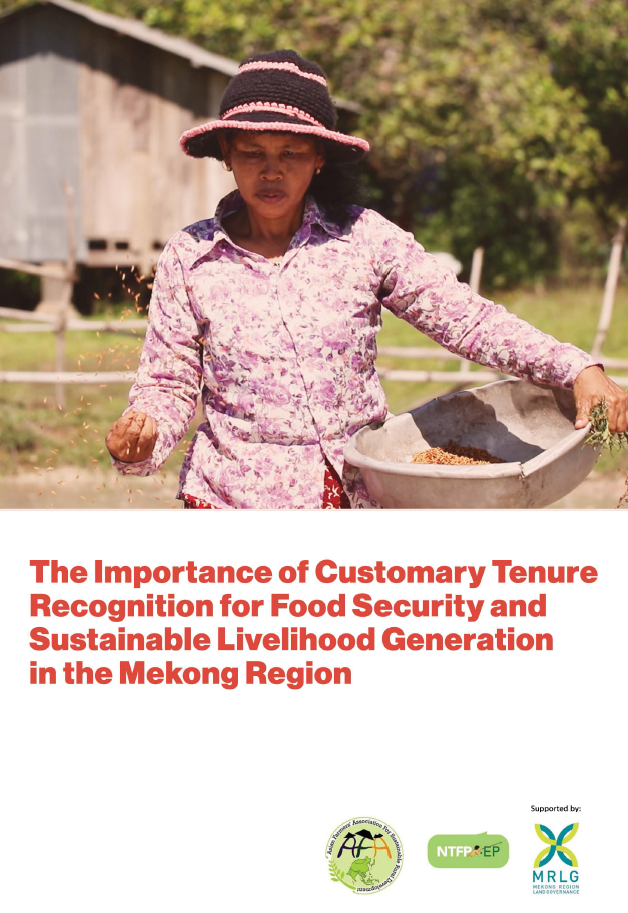Southeast Asia’s extensive forest cover is a critical source of food and livelihood for approximately 14 million people, particularly for indigenous peoples and ethnic minorities. Forest areas where customary tenure predominantly shapes and define how communities manage land and other resources, including the way community members collect and produce food and earn income to meet their families’ needs account for a significant percentage of land areas of countries in the region.
Country reports on customary tenure in the context of food security and livelihoods were undertaken in Cambodia, Laos, Vietnam, and Myanmar, to provide evidence for upholding customary tenure as a key part of sustainable livelihood development and food security in the Mekong region. These countries form the CLMV, a smaller aggrupation within the broader Association of Southeast Asian Nations (ASEAN).
Customary tenure is essential to the food security and livelihoods of communities. the main source of food and incomes of communities–rice and vegetable production, livestock and poultry raising, fishing, as well as the gathering and selling of non-timber forest products–are firmly rooted in the use of natural resources that can be found within their customary domain poses risk to their ability to produce food and generate income to meet their needs. Current policies on lands and forests do not sufficiently capture customary tenure as practiced by communities and fail to adequately recognize and formalize customary tenure rights.




Comments are closed